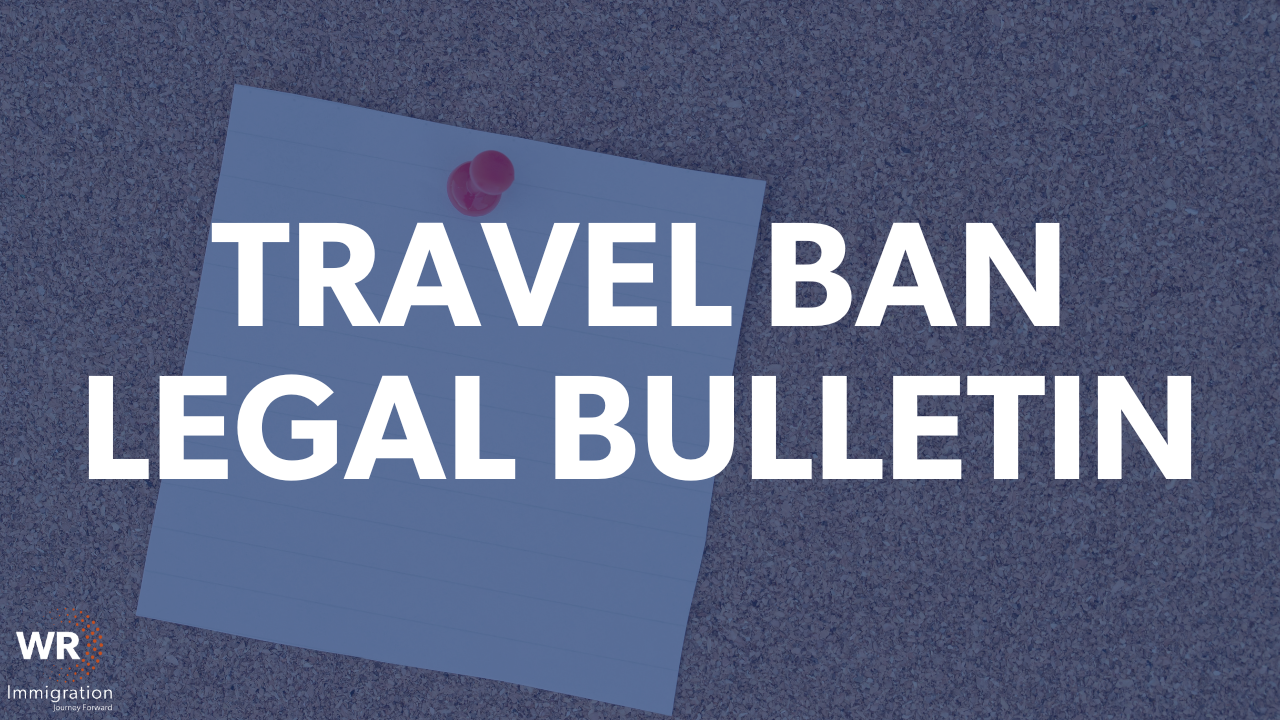RAPID RESPONSE ANALYSIS – U.S. HOUSE “RECONCILIATION” SPENDING PROPOSALS ON IMMIGRATION AND THE BORDER
Date of Report: May 2025
Key Takeaway:
The U.S. House of Representatives’ 2025 “reconciliation” spending bills propose sweeping financial investments and legal changes to immigration and border policy—totaling approximately $151.3 billion. While framed as funding measures, these bills also introduce major policy shifts that restrict access to legal immigration pathways and expand detention and enforcement mechanisms without adequate judicial or humanitarian safeguards.
🔍 Summary of Major Proposed Changes
1. Legal Immigration and Fee Increases
- New and increased fees across nearly every type of immigration application, many of which are not waivable—even for low-income and vulnerable applicants.
- Asylum seekers could be required to pay over $6,400 in fees over 5 years, pricing out many who earn minimum wage.
- Fee waivers eliminated for groups traditionally protected under statutes like the Violence Against Women Act.
- Example: Special Immigrant Juvenile Status (SIJS) applications for abused/neglected children would cost $500.
2. Detention Expansion
- $45 billion allocated to ICE for constructing new detention centers, including family facilities—a 13-fold increase from FY 2024.
- Could support up to 125,000 detention beds, nearly matching the U.S. federal prison population.
- Overrides the Flores Settlement protections for children and weakens standards by allowing DHS to bypass oversight.
3. ICE Enforcement
- $27 billion designated for ICE deportation operations.
- Funds hiring 10,000 new ICE officers and cooperation with state/local police, potentially enabling increased community raids and mass surveillance.
- Expansion occurs despite the dismantling of DHS oversight agencies, raising accountability concerns.
4. Immigration Courts
- Only $1.25 billion allocated for immigration courts (EOIR), a modest 30% increase compared to arrest and detention expansions.
- Backlogs expected to worsen, with immigrants facing months to years between hearings—especially those detained.
5. Children and Family Policies
- Sponsors of unaccompanied children could be charged up to $8,500 and subjected to invasive surveillance.
- Children applying for asylum or SIJS would face $1,000 and $500 fees, respectively.
- Strips licensing requirements for family detention centers, increasing risk of abuse.
6. Border Security and Military Involvement
- $51.6 billion for border wall construction, tripling what was spent during Trump’s first term, despite lack of demonstrated efficacy.
- $5 billion for Department of Defense operations at the border, including military deployment, temporary detention, and deportations.
7. Judicial Oversight Limitations
- New provisions restrict the ability of judges to hold the federal government in contempt for failing to comply with court orders, weakening judicial checks on executive power.
📊 Topline Budget Allocations by Committee
| Committee | Total Immigration/Border Spending | Notable Allocations |
| House Homeland Security | $66.6B | $51.6B for wall, $8.3B for CBP hiring/equipment, $6.3B tech |
| House Judiciary | $79.7B | $45B for detention, $14.4B for removals, $8.6B ICE hiring/HR |
| Armed Services | $5B | Military support for immigration enforcement |
⚠️ Fee Highlights (Selected)
| Application Type | Current Fee | Proposed Fee (2025) | Waiver Available? |
| Asylum (I-589) | $0 | $1,000 | ❌ No |
| Asylum Work Permit (Initial) | $0 | $550 (6-month validity) | ❌ No |
| SIJS (for minors) | $0 | $500 | ❌ No |
| UC Sponsor Fee | $0 | $3,500 + $5,000 in-absentia fee | ❌ No |
| TPS (EOIR) | $0 | $500 | ❌ No |
| Appeal IJ Decision | $110 | $900 | ❌ No |
| Green Card via EOIR | $0 | $1,500 | ❌ No |
🧾 Legal and Humanitarian Concerns
- Access to legal pathways could be functionally denied to low-income immigrants.
- Due process risks from court underfunding and limitations on judicial authority.
- Child welfare at risk due to surveillance, detention, and increased financial burdens.
- Potential human rights issues from mass detention and militarized border enforcement.
📌 Final Note:
The 2025 reconciliation bills represent more than a fiscal realignment—they propose structural transformations to immigration law, practice, and philosophy in the U.S., with lasting implications for immigrant communities, legal rights, and the humanitarian obligations of the government.
For additional information or assistance, please contact us at VisaLaw@Wolfsdorf.com


